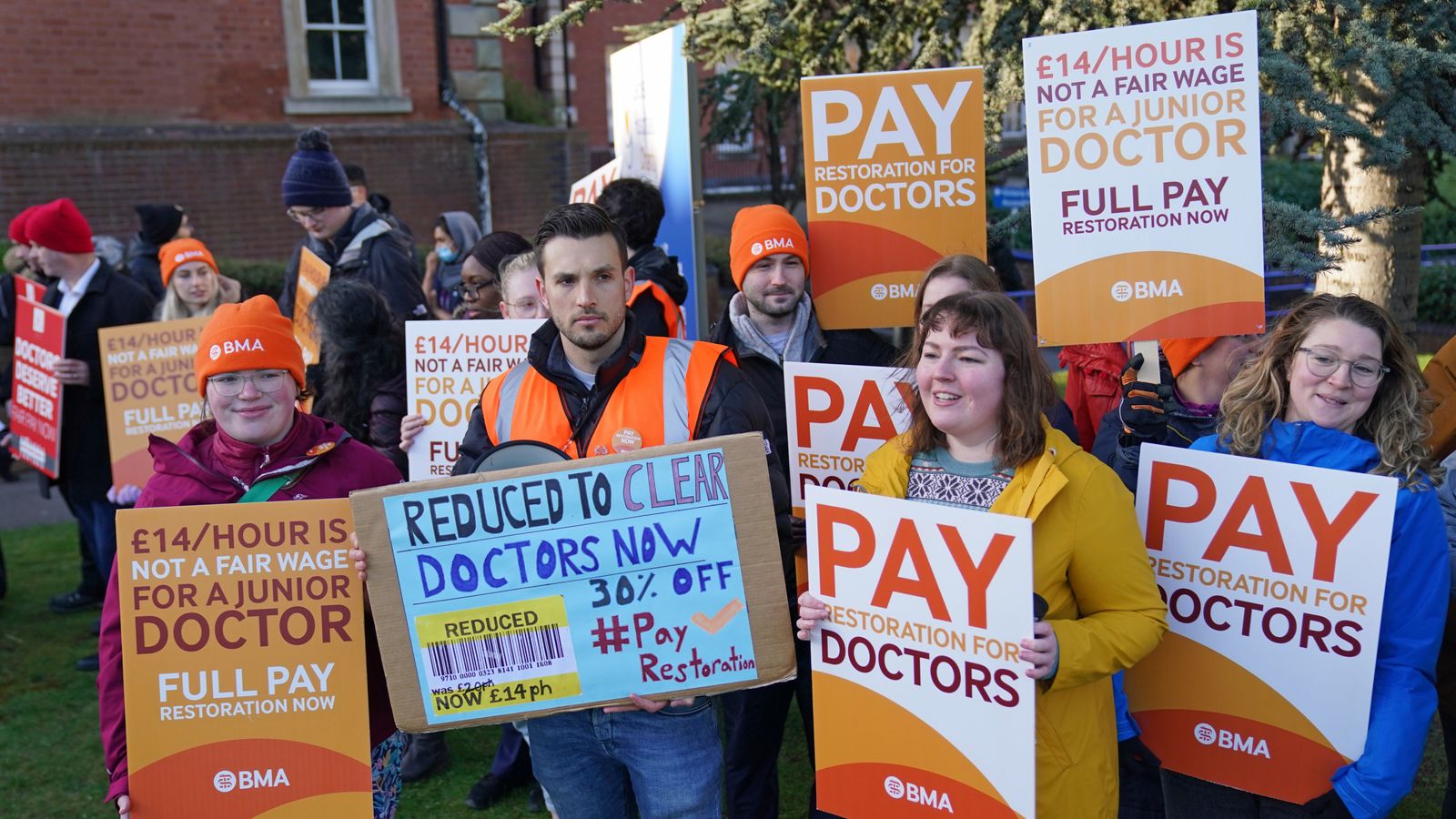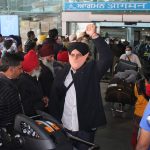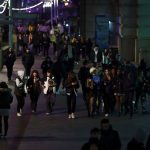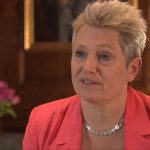Another winter. Another strike. Except this time the industrial action by junior doctors will be longer than any other NHS history.
In total, three days starting on Wednesday morning. Then back out again for six consecutive days from 3-9 January.
In all, there will only be four weekdays unaffected by strike action or holidays over the next three weeks.
The action is already having a serious impact.
Gloucestershire Hospitals NHS Trust has announced that Cheltenham A&E has temporarily closed from now until 8am on 23 December and will do so again from 8pm on 1 January until 8am on 9 January.
Professor Phil Banfield, chair of the British Medical Association (BMA) Council, told Sky News the strikes were called to protect the long-term future of the NHS which could not afford to keep losing trained doctors.
He said: “The aim is not to collapse the NHS, the aim is to save the NHS.
“We must have doctors, you cannot fly an aeroplane without pilots and we represent the skills and the expertise that patients need, and of course doctors are leaving because of a lack of valuing them in the workplace.”
The strike mandate for junior doctors expires in February. That is why they have chosen to strike in December and January.
Sky News understands junior doctors’ leaders ruled out extended industrial action right through Christmas to give the NHS some recovery time between the strikes.
Sunak condemns ‘disappointing’ strikes
Rishi Sunak told parliament the junior doctors’ actions was “disappointing”.
He said: “We have now reached a resolution with every other part of the public sector and every other part of the NHS.
“And I’d also say that it was the junior doctors who received the biggest increase in their pay through the independent public standing pay review process of around a 10% increase for a typical junior doctor.”
BMA fight back
But BMA leaders have challenged the prime minister by saying the government’s proposal of an extra 3% pay rise for junior doctors on top of 8.8% already given would amount to a pay cut for many of its members after years of below-inflation pay rises.
And they also stress that both consultants and specialists have yet to vote in favour of the pay offers they received in January.
More than a million procedures and appointments have had to be rescheduled since industrial action began by health workers last December.
The record waiting list that stands at over 6.4 million patients needing more than 7.7 million appointments and procedures looks set to grow.
Be the first to get Breaking News
Install the Sky News app for free
Health leaders warn that this strike action could be the most damaging yet.
Julian Hartley, chief executive of NHS Providers, said trust leaders are worried.
“It does mean that there will be a huge amount of concern around managing patient safety and quality during this period because urgent care will be the priority, but a lot of planned care will have to be rescheduled for later in the new year.”
It is too late to call off the strikes that begin on Wednesday.
But there is hope – albeit very slim – that both sides will still try to find a way to stop January’s industrial action from going ahead.






















